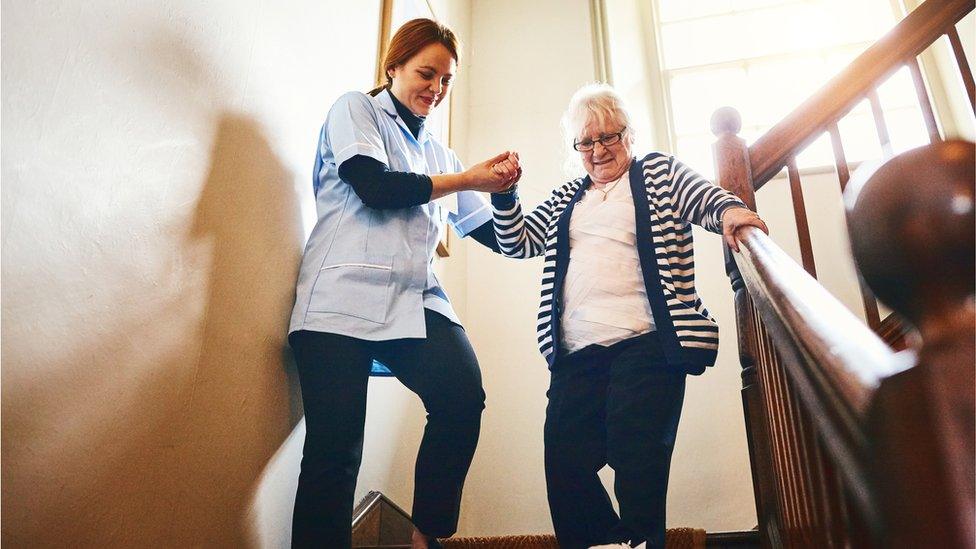Coronavirus 'devastated' poorest communities in Wales, inquiry finds
- Published

An inquiry looked at factors such as poverty, gender, ethnic backgrounds and age
Coronavirus has revealed inequality in society and had a "devastating" impact on the poorest communities in Wales, an inquiry has found.
Senedd members found the virus and lockdown "disproportionately affected" the most disadvantaged groups.
They called for a plan to build a "fairer" country, saying there needed to be "immediate action".
The Welsh Government said addressing inequality would be at the centre of efforts to create a "better Wales".
The equalities committee looked at whether factors such as income, gender, ethnicity and age affected people's experience of the pandemic.
The effect of poverty in Wales
Official statistics showed people in the most deprived places were almost twice as likely to die with coronavirus than the most well-off.
Workers on low-pay were also more likely to be in industries that were shut down and less able to work from home.
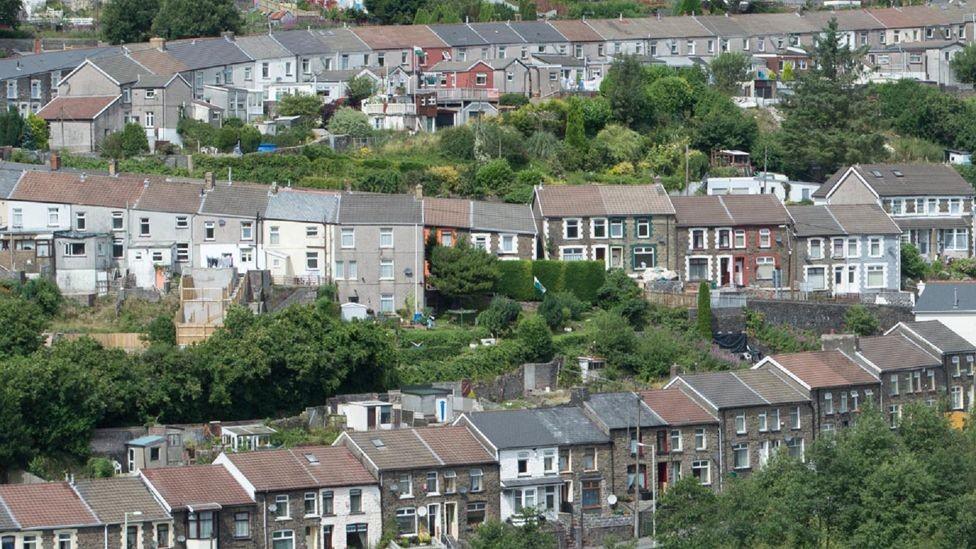
Rhondda Cynon Taff saw 176.2 deaths per 100,000 of its population in April
In its report, the committee repeated a call for a comprehensive strategy to tackle poverty, external - something the Welsh Government previously rejected.
"The devastating impact of the pandemic on the most deprived communities in Wales makes the case even stronger for such a strategy," the report says.
What about gender?
The likelihood of getting seriously ill or dying with Covid-19 is higher for men, but the report shows the burden of the pandemic on women too.
Women account for most health and social care staff and have taken on most of the unpaid care duties in the home.
Welsh Government data also shows women from ethnic minorities are the most likely to do jobs with the highest potential exposure to coronavirus.

'They are in need of everything'
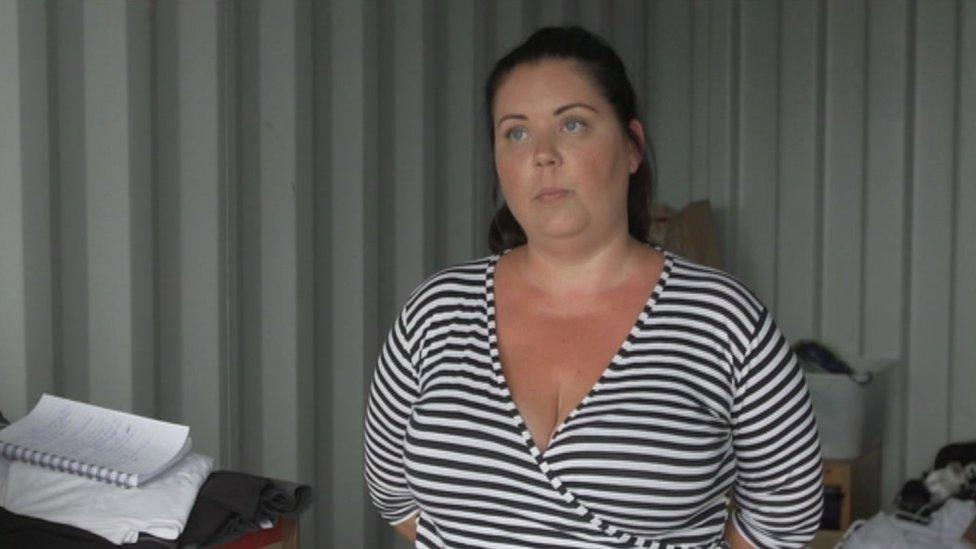
Becca James helps get school uniforms to families who cannot afford them
Parents who have lost jobs because of the pandemic are struggling with the cost of sending children back to school, says Becca James as she sorts through piles of donated clothes.
She helps run a group, funded by the National Lottery, that provides uniforms to families who cannot afford them.
The effect of the coronavirus crisis is evident in the calls and messages to their Facebook pages, says Becca, 38, a mother of two from Barry.
"A gentleman - he and his wife both lost their job," she says of one family that got in touch recently.
"They've got three teenage kids in high school.
"So literally, they are in need of everything - trousers, PE kits, coats, shirts, shoes.
"It's really, really sad."
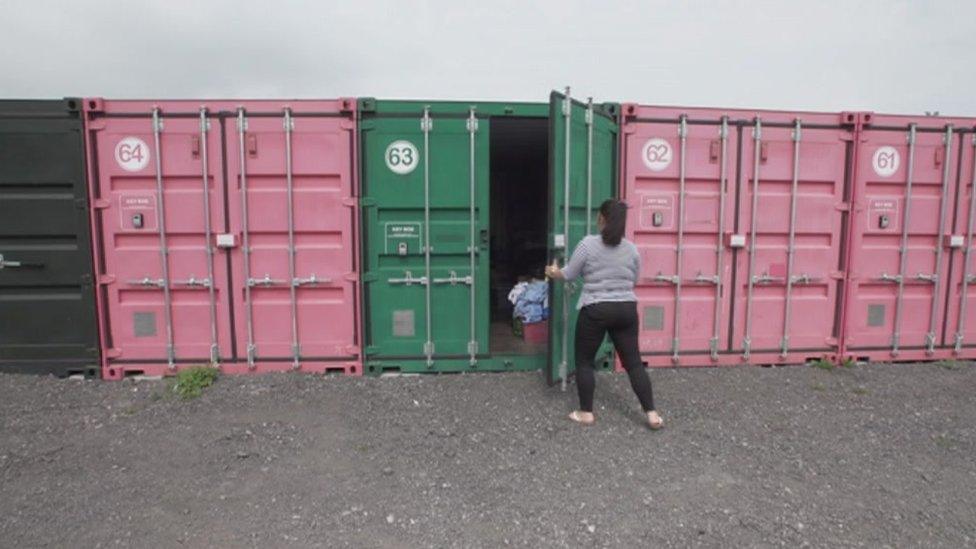

Is ethnicity a factor?
Black, Asian and minority ethnic (BAME) people were at higher risk of getting ill, the report said.
People from some BAME backgrounds were also more likely to work in front-line health and social care jobs.
But a shortage of data on the ethnicity of those workers makes it difficult to analyse how they are affected.
There were gaps in data about patients too. Initially, the ethnicity of patients dying with Covid-19 was not being recorded.
How about coronavirus' impact on education?
Fears that children who were already struggling at school could fall further behind are included in the report.
Boys, children from low-income families and those with special educational needs generally have lower attainment levels, as do some minority ethnic children, the report says.
Closing schools "is likely to widen these inequalities" and the Welsh Government must help children who are affected the worst, it said.
Coronavirus: All you need to know about Wales' schools returning full-time in September
There was also concern that children who needed laptops and tablets were not getting them quickly enough, despite extra Welsh Government funding.
And the Equality and Human Rights Commission (EHRC) told Members of the Senedd that teachers might be influenced by conscious or unconscious bias when awarding grades after exams were cancelled.
Older and disabled people faced 'additional distress'
As well as the risk posed by the virus, older people have experienced the "additional distress" of shielding and the possible loss of treatment.
A duty to assess the care needed by older and disabled people was put on hold to ease pressure on the NHS and councils during the crisis.
The duty has still not been re-imposed, which "sends a powerful message to those groups of people that the fulfilment of their care needs is seen as non-essential", the report says.
The committee also welcomed work by the EHRC and Older People's Commissioner to see whether the human rights of older people had been upheld.
It follows concern about a high number of deaths in care homes.
What does the Welsh Government say?
A spokesperson said equality would be a focus of its efforts in recovering from the pandemic.
"We agree the coronavirus pandemic has had a disproportionate effect on many of the most disadvantaged people in Wales," they said.
"Addressing such inequalities is at the centre of our efforts to create a better Wales as we recover from the pandemic."
- Published31 May 2020
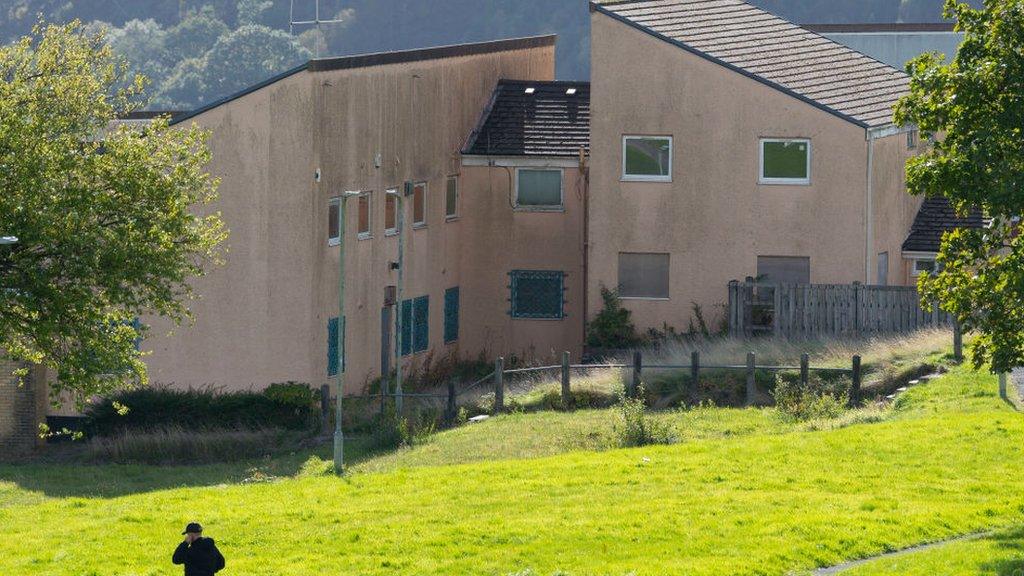
- Published5 June 2020

- Published21 July 2020
